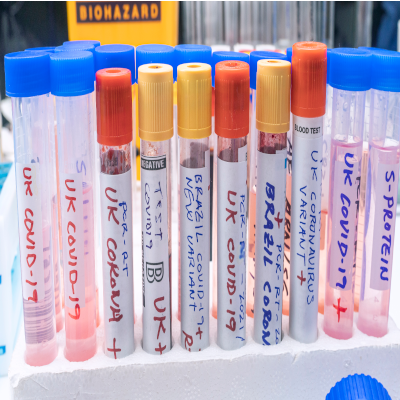By now we’ve all heard about COVID-19 variants. COVID-19 variants are products of genetic variations in the SARS-CoV-2 viral genome. These changes occur naturally over time after infection occurs in various species. This antigenic drift by natural selection does cause rare but favorable mutations for the virus.
For example, changes that occur in the S gene (which contains instructions for the invasive Spike protein) may allow the virus easier access to human cells.
Therefore, monitoring these variations become important to ward off future public health concerns. 
Around the world, agencies are sequencing and sharing SARS-CoV-2 genomic data. In the US, tracking known SARS-CoV-2 variants and identifying new ones is the responsibility of the CDC and many other state and diagnostic laboratories. Positive samples from patients are sequenced and undergo further evaluation. This process monitors the impact of variants on public health and checks for the effectiveness of vaccines and current COVID-19 treatments, and also verifies that current testing methods can detect any mutations.
Here is an example of LOINC terms that support sharing new variant information, including the sequence of the entire genome, a specific point mutation or an interpretation of a pathogenicity of a variant. The scale attribute of LOINC being nominal or narrative values helps decipher the result format. LOINC has testing codes such as:
94764-8 SARS coronavirus 2 whole genome:Seq:Pt:Isolate/Specimen:Nom:Sequencing
96741-4 SARS coronavirus 2 variant:Type:Pt:XXX:Nom:Sequencing
96755-4 SARS coronavirus 2 variant interpretation:imp:Pt:XXX:Nar:
96894-1 SARS coronavirus 2 whole genome sequencing & identification panel:-:Pt:XXX:-:Molgen
New codes will be provided as needs arise. If you have questions or suggestions for future topics of discussion, or need help implementing or mapping to standard terminologies, please contact us.
